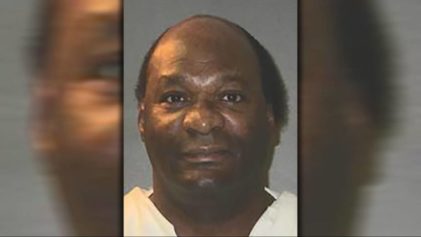
Florida State Attorney Aramis Ayala said the death penalty isn’t an effective way to prevent crime. Photo by Joe Burbank/Orlando Sentinel.
Florida’s newly elected state attorney announced Thursday, March 16, her refusal to seek the death penalty under any case during her administration, sparking outcry from the state’s law enforcement community.
New Orange-Osceola State Attorney Aramis Ayala made the announcement during a morning news conference, saying, “I have determined that doing so is not in the best interest of the community or the best interest of justice.
“I will continue to hold people who do harm to this community accountable for their actions.”
While she understood why her decision sparked such concern among local law enforcement officials, Ayala said this wasn’t a choice she made arbitrarily. Still, bitter reaction was swift among local police and state officials, including Gov. Rick Scott. Scott took his disapproval a step further, however, by asking Ayala to recuse herself from the case against accused cop killer Markeith Loyd.
“She has made it abundantly clear that she will not fight for justice for Lt. Debra Clayton and our law enforcement officers who put their lives on the line every day,” the governor said.
Attorney General Pam Bondi echoed Scott’s sentiments, asserting that Ayala’s decision sent a “dangerous message” to both residents and visitors of the Greater Orlando area.
“Furthermore, it is a blatant neglect of duty and a shameful failure to follow the law as a constitutionally elected officer,” Bondi said.
State Rep. Bob Cortes (R-Fla.) and Orange County Sherrif Jerry Demings were among the many noted public officials to come forward and express opposition to Ayala’s decision. In a news release, Cortes said he planned to contact members of the state legislature about drafting legislation t ensure that Florida laws are followed, local station WFTV reported. He also announced his intention to look into whether the state attorney’s decision is a possible violation of public integrity.
After learning of Ayala’s refusal to seek the death penalty, Demings said he urged her to think of the families and victims of Loyd’s heinous crimes.
“While it is her decision to make, the heinous nature of Loyd’s crimes resulted in the murder of Sade Dixon, an unborn child, and Lt. Clayton,” the sheriff said. “Also, because of Loyd’s actions, we lost Deputy Norm Lewis. I urge her to consider the wishes of the victims’ families and try these cases with death as the penalty.”
Despite the severe backlash, Ayala maintains that the death penalty doesn’t provide justice to victims’ families, who are often dragged through years and years of court appeals. She also pointed to research proving that capital punishment isn’t an effective crime deterrent and is sometimes even more costly than a life sentence.
Ayala’s announcement came the same week Scott chose to restore the death penalty as a prosecutorial tool, the Orlando Sentinel reported. The law now requires that jurors recommen capital punishment unanimously.
Earlier this year, a spokeswoman from the state attorney’s office identified six separate cases where they were seeking the death penalty, including the case of Sanel Saintsimon, who was charged in the beating death of his girlfriend’s 16-year-old daughter. On Tuesday, March 14, spokeswoman Eryka Washington told the Orlando Sentinel that Ayala’s office was still pursuing the death penalty in all six cases. By Thursday, however, the office had shifted its stance.
“At the time you made your inquiry, Feb. 27, we were moving forward with the death penalty in all six pending cases,” Washington wrote in an email to the paper. “As the State Attorney said today, this office will not be seeking death for those six pending cases.”
It’s still unclear when Ayala ultimately made the decision to abandon use of the death penalty. Not everyone thought her decision to do so was problematic, however.
“State Attorney Aramis Ayala’s decision sets a powerful example of reform that others must heed,” wrote Color of Change PAC. “The death penalty has always been applied disproportionately to Black people, from the era of slavery to the present day, where it is overlaid on an unequal system of mass incarceration. And, today, this discriminatory system took a big hit.”
Adora Obi Nweze, president of Florida State Conference NAACP, also said Ayala’s decision was a step in the right direction.
“Ending use of the death penalty in Orange County is a step toward restoring a measure of trust and integrity in our criminal justice system,” Nweze said.


